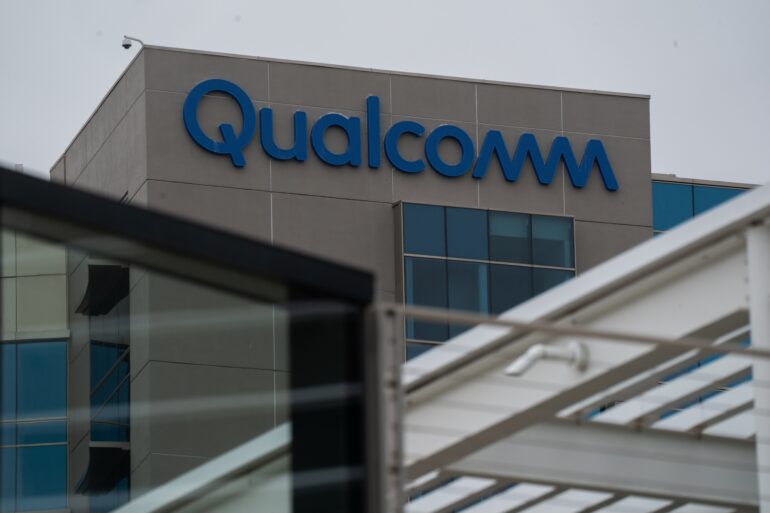TL;DR:
- Shuaifeng Jiang and Hao Luo, ASU doctoral students, earned the 2023 Qualcomm Innovation Fellowship for their work in machine learning.
- Their research focuses on enhancing wireless communications through machine learning algorithms.
- Qualcomm’s recognition highlights the alignment with its vision for advanced communication systems.
- The fellowship offers substantial financial support, mentorship, and opportunities for product development.
- Jiang and Luo’s project aims to optimize wireless signal direction for greater efficiency.
- ASU’s focus on entrepreneurship and innovation played a pivotal role in their success.
- Dr. Alkhateeb, their supervisor, anticipates the fellowship will advance their research significantly.
Main AI News:
In the ever-evolving landscape of artificial intelligence, machine learning stands out as a key subfield dedicated to enhancing computer performance through data-driven algorithms and statistical models. This remarkable feat, achieved by machines learning from data, eliminates the necessity for manual programming interventions. Recently, two exceptional minds, Shuaifeng Jiang and Hao Luo, doctoral students in electrical engineering at Arizona State University’s Ira A. Fulton Schools of Engineering, have been recognized for their groundbreaking work in the realm of machine learning. Their dedication has earned them the prestigious 2023 Qualcomm Innovation Fellowship.
Jiang and Luo’s remarkable journey began in ASU’s Wireless Intelligence Lab under the guidance of Ahmed Alkhateeb, an assistant professor of electrical engineering in the Fulton Schools. Their proposal, rooted in extensive research, captured the attention of Qualcomm experts, who ranked students’ applications and presentations in a rigorous selection process. The awarding of the fellowship underscores Qualcomm’s acknowledgment of the immense significance of their research and its alignment with the company’s vision for communication systems, including the cutting-edge 6G and future wireless technologies.
The Qualcomm Innovation Fellowship is a platform designed to create and nurture opportunities for doctoral students to explore novel ideas while fostering an entrepreneurial mindset. This program not only offers substantial financial support, with each recipient receiving a yearlong award of $100,000, but also provides invaluable mentorship from Qualcomm engineers. Additionally, it offers hands-on experiences that empower students to transform their innovative proposals into tangible products. This year, Jiang and Luo joined the ranks of 18 select teams that earned the title of Qualcomm Innovation Fellows.
The duo’s fellowship project, titled “ML Designs for Robust and Generalizable CSI feedback and Beam Management Across Environments and Devices,” focuses on developing machine learning algorithms for next-generation communication systems. These systems will deploy large numbers of wireless network antennas at base stations and mobile users’ devices. Their proposed machine learning algorithms aim to optimize the direction of wireless signals across diverse locations and devices, substantially enhancing the efficiency of wireless networks in large-scale applications.
Dr. Alkhateeb, a faculty member in the School of Electrical, Computer, and Energy Engineering, is confident that the fellowship will significantly amplify the impact of Jiang and Luo’s research. He envisions it as an opportunity for them to gain practical insights into the design of advanced communication systems, learning from industry-leading experts at Qualcomm.
Hao Luo, reflecting on this achievement, shared his enthusiasm, saying, “The Qualcomm Innovation Fellowship is a recognition of the potential of our research. Winning this prestigious fellowship not only brings a sense of accomplishment but also motivates us to push the boundaries of innovation. We are eager to make the most of this opportunity and do impactful research.“
The Fulton Schools actively encourage faculty and students to explore the commercialization potential of their research. Initiatives like Entrepreneurship + Innovation at the Fulton Schools and ASU’s J. Orin Edson Entrepreneurship + Innovation Institute provide invaluable resources and support, helping innovators present, pitch, and evaluate their entrepreneurial ideas and even file patents when necessary. These programs played a pivotal role in helping Jiang and Luo realize the worth of their machine learning solution.
Luo also emphasized how their research experience in the Wireless Intelligence Lab had equipped them to address real-world problems. He remarked, “Working under the supervision of Professor Alkhateeb gave us the opportunity to explore novel ideas and address practical challenges, which makes our research more visible and impactful. Additionally, we gained experience in machine learning, its subset deep learning, signal processing, and wireless communication, putting us in a unique position to pursue this interdisciplinary research idea.”
Dr. Alkhateeb expressed his pride in his students’ dedication and shared his confidence that the fellowship would propel their research to new heights. He said, “I’m very proud of Shuaifeng and Hao. They prepared diligently and worked hard throughout the fellowship selection process, and I’m very happy that they were awarded it. Beyond the financial support, I believe this fellowship will advance their research and deepen their understanding of the practical aspects of designing 5G and 6G communication systems, especially because they will be interacting closely with Qualcomm’s engineers and researchers.“
Conclusion:
The recognition of Shuaifeng Jiang and Hao Luo’s machine learning research by Qualcomm, as evidenced by the prestigious Innovation Fellowship, highlights the growing importance of advanced communication systems in the market. Their work in optimizing wireless networks’ efficiency through novel algorithms positions them at the forefront of innovation, showcasing the potential for machine learning to transform communication technologies in the future. This recognition also underlines the significance of fostering entrepreneurship and innovation within academic institutions, as it can lead to groundbreaking developments with real-world applications.

